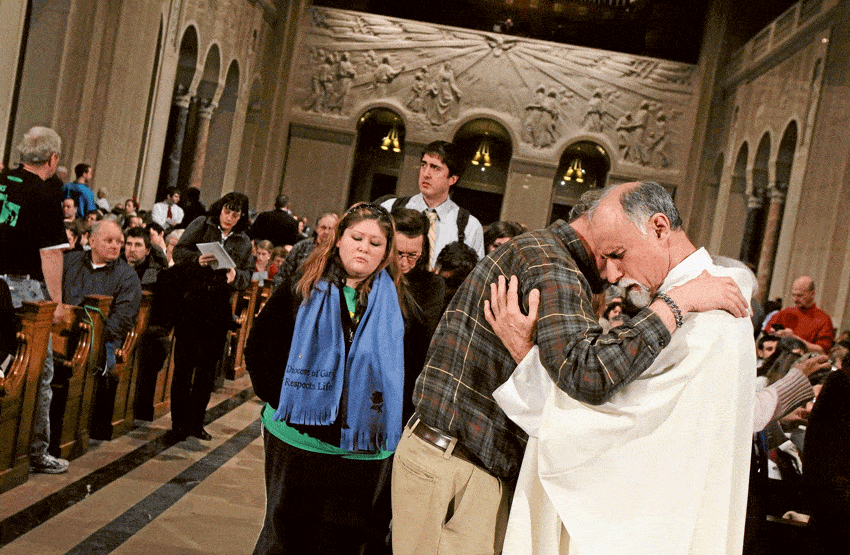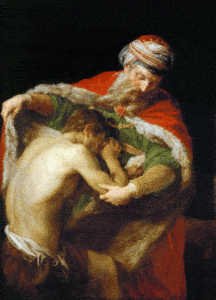
The parable of the prodigal son is one that has been a constant in my life since I was a child. It was simple enough at first – sitting in a classroom and taking in the story of a father’s unending love and a son’s penchant to rebel.
Year upon year, as I left the classroom and paid more attention during the Divine Liturgy, I began to learn that this story carried a rich complexity and offered a new lesson every time I reflected on it.
Read on the fourth Sunday of Lent in the Maronite lectionary, this parable tells a story of repentance, forgiveness and God’s unwavering love, offering guidelines on living a fulfilling Lent in accordance with the teachings of the church.
By definition, the word “prodigal” describes someone who is wasteful and reckless with resources, something which many of us may be guilty of – myself included.
“The church strongly encourages repentance during Lent, which is one of the themes in the parable.”
How often do we find ourselves in the same position as the prodigal son, using our resources where unnecessary and perhaps needlessly extravagant? During Lent, the church encourages almsgiving and charity, especially in the midst of the difficult times many people are facing.
Let us make an effort to be conscious of our own habits during this season and strive to help others within our capacity.
The church strongly encourages repentance during Lent, which is one of the most vital themes in the parable. After the son squandered his inheritance and found himself in need, he realised there was only one place for him –the home of his father, of which he no longer felt worthy.
In his sin and shame, he returned to his father’s house expecting to be treated as one of his hired hands, only to find himself welcomed back with a fine robe, a ring on his finger and a feast worthy of a king.

It is easy for us to lose ourselves in the shame of our own sins, to get caught up in our guilt and feel unworthy of our heavenly father, the way the prodigal son felt unworthy of his own father.
But just as the father in the parable awaited his son with open arms, our heavenly father awaits us in the sacrament of confession, ready to forgive our sins and welcome us back to his home. Like the prodigal son, we must be able to overcome our doubt and embarrassment, because that is often the only factor that holds us back from returning to God’s perfect love.
The Maronite Divine Liturgy’s Qolo hymn on the Sunday of the prodigal son defines this beautifully, saying, “The Father we praise, who opens His arms to all. The Son we adore, who welcomes those who repent. The Spirit we thank, who pardons those who have sinned. May God’s great love be upon us, from age to age.”
Though we may relate more to the son in the parable, there is also an important lesson that the father teaches us, and that is to forgive with grace and open arms.
Like the brother in the parable, we will find ourselves angry and jealous at times – it is in our human nature to react as such when we feel that we have been wronged.
In the parable, the brother expressed his anger at not being celebrated for his efforts in his father’s household, taking for granted the fact that he was living the life his brother longed for after experiencing hardship away from his father’s love.
In response to this, his father said, “We had to celebrate and rejoice, because this brother of yours was dead and has come to life; he was lost and has been found.”
“Each of us have been wronged and we have each wronged others. Just as we would like to be forgiven by our father and our loved ones, so must we learn to forgive and pray for the strength to do so.”
As such, we must consider that the people around us are in varying stages of their lives, and, like the prodigal son, may be going through hardships of which we are unaware.
Being able to forgive so openly is difficult, but it is something we must strive to in the season of Lent and at all times.
Each of us have been wronged and we have each wronged others. Just as we would like to be forgiven by our father and our loved ones, so must we learn to forgive and pray for the strength to do so.
During this season of Lent, let us learn from the prodigal son, from his brother and from his father. In this time of healing and renewal, our heavenly father awaits our return to him with open arms and that unfathomable, perfect love. May we come to life and find him.
